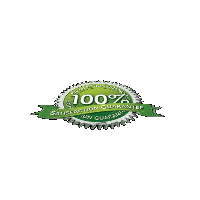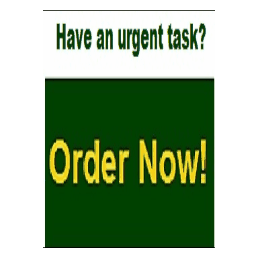MSW CLINICAL LEARNING CONTRACT
MSW CLINICAL LEARNING CONTRACT
The student learning contract provides a broad framework for developing an individualized learning plan which is responsive to the needs of the student and the resources of the field agency. It is designed to give direction and learning structure to the field experience and is developed around the core practice competencies that are designated in the 2008 Educational Policy and Accreditation Standards (EPAS) by the Council on Social Work Education (CSWE).
List of Ten Core Competencies Identified by CSWE
1. Identify as a professional social worker and conduct oneself accordingly.
2. Apply social work ethical principles to guide professional practice.
3. Apply critical thinking to inform and communicate professional judgments.
4. Incorporate diversity into practice.
5. Advocate for human rights and social justice.
6. Engage in research-informed practice and practice-informed research.
7. Apply knowledge of human behavior in the social environment.
8. Engage in policy practice to advance social and economic well-being.
9. Respond to contexts that shape practice.
10. Engage, assess, intervene and evaluate with individuals, families groups, organizations and communities.
CSWE has operationalized these competencies by identifying 41 practice behaviors defined as “a set of measurable practice behaviors that are comprised of knowledge, value and skills.” The internship plays a key role in teaching practice behaviors to students while measuring and reflecting the student’s ability to demonstrate capacity in the ten core competency areas identified by CSWE.
It is the joint responsibility of the student and field instructor to negotiate the learning contract content within the first weeks of the field placement. The student is responsible for providing a copy of the learning contract to the Seminar Instructor/Field Liaison.
This learning contract outlines the core competencies and practice behaviors that all accredited social work programs are required to measure. Each practice behavior should have a student task which relates directly to the behavior. A sample contract is included to assist students and field instructors in developing appropriate tasks. Please refer to the Field Education Website at http://cohpa.ucf.edu/socialwork/field-education/ or contact your field liaison if you have additional questions.
Tasks/Activities Target Date
42. Demonstrate professional use of self with client(s)
A.
43. Understand and Identify professional strengths, limitations and challenges
A. Recognize personal triggers that could impede effectiveness with clients
44. Develop, manage and maintain therapeutic relationships with clients within the person-in-environment
and strengths perspectives
A. Demonstrate knowledge of PIE and Strengths Perspective by utilizing specific practice skills and clinical interventions ______________
reflective of perspectives
Tasks/Activities Target Date
45. Apply ethical decision-making skills to issues specific to clinical social work
A.
46. Identify and use knowledge of relationship dynamics, including power differentials
A.
47. Recognize and manage personal biases as they affect the therapeutic relationship in the service of the
Clients’ well-being
A.
Tasks/Activities Target Date
48. Engage in reflective practice
A.
49. Identify and articulate clients’ strengths and vulnerabilities
A.
50. Evaluate the strengths and weaknesses of multiple theoretical perspectives and differentially apply them
to client situations
A.
51. Communicate professional judgments to other social workers and to professionals from other disciplines,
in both verbal and written format
A.
Tasks/Activities Target Date
52. Research and apply knowledge of diverse populations to enhance client well-being
A.
53. Work effectively with diverse populations
A.
54. Identify and use practitioner/client differences from a strengths perspective
A.
Tasks/Activities Target Date
55. Advocate for the creation and revision of practices and tools that support anti-oppresive practice
A. Advocate for public policies that respect the cultural values, norms and behaviors of diverse groups and communities ______________
56. Advocate for systems and polocies that create and provide equal access for all
A. Empower clients to assume advocacy roles within their community
Tasks/Activities Target Date
57. Use the evidence-based practice process in clinical assessment and intervention with clients
A. Research and obtain a professional journal article related to evidence-based practice and field placement; review and process
with field instructor during supervision
Tasks/Activities Target Date
58. Synthesize and differentially apply theories of human behavior and the social environment to guide
Clinical practice
A.
59. Use bio-psycho-social-spiritual theories in formulation of comprehensive assessments
A.
Tasks/Activities Target Date
60. Analyze policy with regard to the policy’s impact on clients and practice
A. Stay current with social work trends and research in order to advocate for client rights on both micro and macro levels
61. Advocate for social policies or agency policies that will advance the social and economic well-being of clients
A. Communicate to stakeholders the implication of policies and policy change in the lives of clients
Tasks/Activities Target Date
62. Assess the quality of clients’ interactions within their social contexts
A.
63. Work collaboratively with others to effect systemic change that is sustainable
A.
Engagement
Tasks/Activities Target Date
64. Develop a culturally responsive therapeutic relationship
A.
65. Establish a relationally based process that encourages clients to be equal participants in the establishment
of treatment goals and expected outcomes.
A.
Assessment
Tasks/Activities Target Date
66. Use multidimensional bio-psych-social –spiritual assessment tools
A.
67. Assess clients’ readiness for change
A.
68. Assess client coping strategies to reinforce and improve adaptation to life situations, circumstances and events
A.
Intervention
Tasks/Activities Target Date
69. Critically evaluate, select and apply best practices and evidence-based interventions
A.
70. Demonstrate the use of appropriate clinical techniques for a range of presenting concerns identified
in the assessment, including crisis intervention strategies as needed
A.
71. Collaborate with other professionals to coordinate treatment interventions
A.
Evaluation
Tasks/Activities Target Date
72. Use clinical evaluation of the process and/or outcomes to develop best practice interventions for a range
of bio-psycho-social-spiritual conditions
A.
You Need a Professional Writer To Work On Your Paper?

Have any Assignment?








